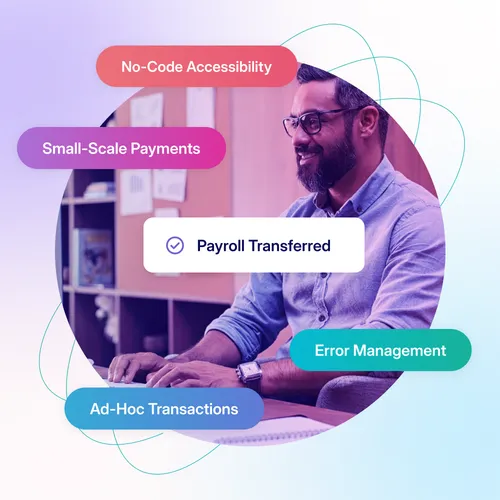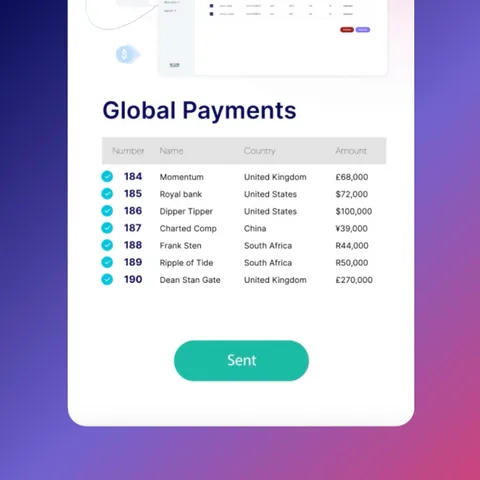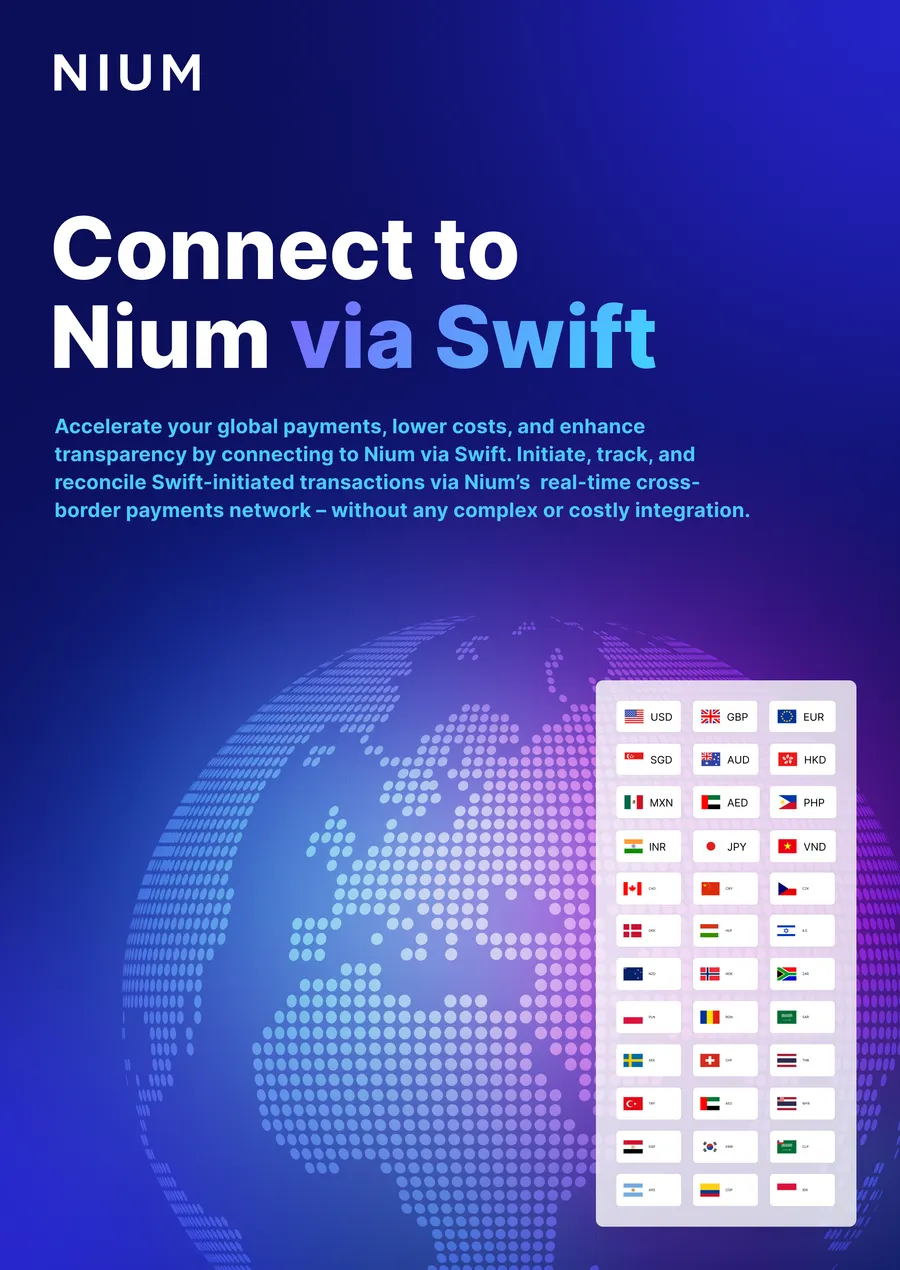Real-time payments have transformed how businesses make transactions in the global digital payments landscape, working faster, more efficiently, and managing funds over vast distances in seconds. However, as with any great shift in technology, it’s important to consider the risks.
With the rise of real-time cross-border payments, compliance measures have become an increasingly major focus for businesses, governments, and consumers. Regulators are increasingly cracking down on global businesses in the payment chain to ensure that this new technology doesn’t drive an increase in financial crime. In this blog, we'll discuss what payments compliance is, why it's important for merchants, financial institutions, and other organizations, the challenges of real-time B2B payments compliance, and how to overcome them.
What is payments compliance?
Payments compliance refers to a set of regulations and guidelines that businesses must adhere to when making transactions. In a broad sense, compliance ensures that transactions are conducted within legal and ethical parameters, protecting against fraud and money laundering, and meeting local, regional, and international regulations.
Key compliance processes include:
- Collecting and verifying customer identity, screening customers against global watchlists, including sanctions lists, politically exposed persons (PEP) lists, and adverse media lists
- Conducting enhanced due diligence for high-risk customers or transactions
- Monitoring transactions for unusual patterns or behavior and investigating suspicious transactions, and filing suspicious activity reports (SARs)
- Implementing transaction monitoring systems to detect potential money laundering activities
This is one of the most important focus areas for financial institutions – and an expensive one. A study revealed that the global spend on financial crime compliance at financial institutions had reached $213.9 billion in 2021 – an increase of nearly 16% on the previous year.
Why is compliance important to businesses handling B2B payments?
Compliance is essential for global businesses that want to protect customers, mitigate risks and avoid penalties.
- Regulatory penalties: Non-compliance can result in hefty fines, legal penalties, and damage to a company's brand image. In 2020 alone, global banks were hit with $10.4 billion in fines for AML violations.
- Customer trust: In an era where more and more data moves online, businesses in the payment chain need to demonstrate that consumers can trust them with their most important information. This means that the burden of trust for institutions is higher than ever, with previous high-profile scandals damaging reputations and customer trust.
- Lost revenue: In addition to regulatory punishment, compliance issues can be damaging to the bottom line in terms of customer payouts, customer churn, or system upgrades. As of 2022, the average cost of a data breach in the financial industry worldwide was $5.97 million, up from $5.72m in 2021.
However, despite the key nature of compliance management, 41% of financial institutions are considered inadequate or severely inadequate to meet AML and sanctions compliance.
What are the challenges of real-time B2B payments compliance?
Real-time B2B payments add another layer of complexity to compliance. Compliance teams must work with various stakeholders, including payees, financial institutions, and regulatory authorities, to ensure that transactions are completed within regulatory frameworks, all of the while managing a large amount of data.
Outdated technology
The rapid pace of digitization has made it more difficult for compliance teams to keep ahead of financial crimes, especially in the payments space, where fraudsters can move illicit money at a speed never seen before. Moreover, rapidly evolving technology, market fragmentation, and changing regulations make compliance more challenging.
The issue has been exacerbated by a historic under investment in compliance by larger institutions resulting in manual and laborious KYC processes. Between 31%-60% of KYC review tasks are still being completed manually by over half of financial institutions, and 90% said that manual KYC impacts the ability to make better risk decisions.
Cost management
Manual processes mean that any new customer acquisition or new regulation brings new costs. Compliance budgets have increased 22% over the last three years, with global spend on Anti-Money Laundering (AML)/ Know-Your-Customer (KYC) data and services expected to total a record $1.56 billion in 2022. For banks that may be onboarding tens of thousands of clients every year, KYC costs alone can run into millions of dollars (up to $35 million for a bank onboarding 10,000 new clients per annum).
Data and Attention
One of the biggest challenges of real-time cross-border payments compliance is ensuring that transactions are conducted quickly, efficiently, and securely while remaining vigilant in detecting and preventing fraud, money laundering, and other financial crimes.
However, manual processes and a lack of automation can make it difficult to keep up with the volume of transactions, with key issues including:
- Lack of automation, the volume of manual processes
- Amount of alerts
- Quantity of false positives
- Increases in transaction volume
- Detection of suspicious transactions
Solving these issues requires moving beyond legacy processes to manage onboarding and customer data management more efficiently and effectively.
Choosing the right B2B technology partner for compliance and growth
Compliance is an essential competency for any global business handling payments – without the right tools on your side, compliance costs can quickly cut into your margins, expose you to unnecessary risk and damage your customer experience.
Nium helps global businesses increase the effectiveness of AML/KYC efforts by providing faster, more capable, accurate, flexible, and cost-efficient systems to manage end-to-end payments. Through Nium’s centralized platform, teams can monitor and analyze transactions more efficiently and identify potential threats to the organization's compliance requirements while helping the business scale efficiently.
- Secure, compliant payments: Nium's global B2B payment platform offers businesses a single integration simplicity that can help them avoid delays and extra fees when sending money via the most direct route.
- Global compliance: Nium's established licensing agreements allow businesses to move money faster and easier, while also ensuring compliance with local, regional, and international regulations.
- Data visibility and control: Nium's Know Your Customer and Know Your Business options, RFI processes, and AML checks help confirm individual transactions and provide an added layer of security.
To find out more about how you can scale your compliance operations, book a call with one of our payment experts today.







.png@webp)






